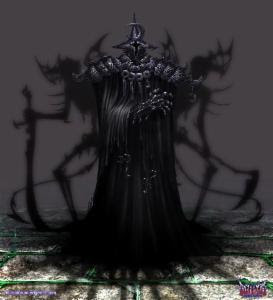Erebus was one of the primordial deities in Greek mythology, born out of the primeval void, Chaos. It was the personification of the deep darkness and shadows. Erebus was the brother of Gaea (earth), Tartarus (underworld), Eros (love), and Nyx (night). From the union of Erebus and Nyx, various children were produced, including Aether, Hemera (day), Hypnos (sleep), the Moirai (the Fates), Geras (old age) and Thanatos (death). The word Erebus was also used to indicate a region of the Underworld where the dead would go immediately after dying.
Erebus features little in Greek mythological tradition and literature, but is said to have fathered several other deities with Nyx; depending on the source of the mythology, this union includes Aether, Hemera, the Hesperides, Hypnos, the Moirai, Geras, Styx, Charon, and Thanatos.

Comments
Post a Comment